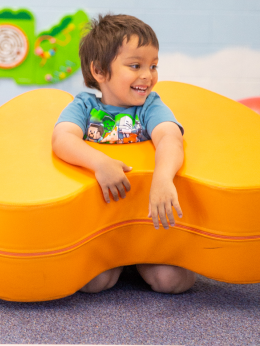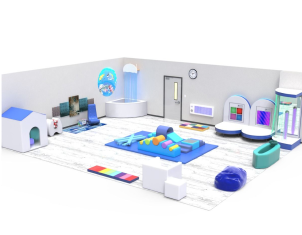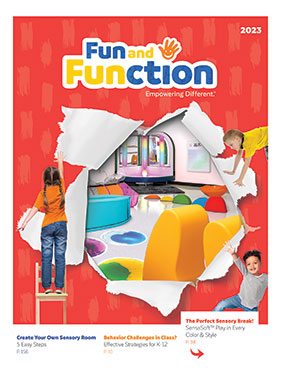In all my years of teaching, my favorite colleagues were always OTs. I've never met a more creative, enthusiastic and warm hearted group than the OTs I worked with. As special education teachers, we know how valuable EVERY member of the team can be, but today I want to focus on ways to best utilize the skills and talents of the occupational therapist.
1. OTs are secret behavior management geniuses. In my experience, 100% of unwanted behaviors in students with special needs are a way to communicate that something is wrong. In my students with autism, almost all of those behaviors were trying to tell me that the student's environment was uncomfortable or scary. OTs are trained in helping students make sense of sensory information that may be sending the wrong signals to the brain, which can then lead to discomfort or distraction, which can then lead to unwanted behaviors.
2. OTs are wonderful problem solvers. From finding the perfect fidget to discovering the perfect piece of adaptive equipment to just looking at a challenge from a different perspective, there are many areas of the school day where input from an occupational therapist can be invaluable.
3. OTs are practical. I love special education administrators as much as the next teacher, but sometimes when an educator is far removed from the day to day activities of a classroom it's hard for them to understand the everyday challenges. Ask an administrator advice and the likely answer will be related to theory. Ask an OT for advice and the likely answer will be a practical solution. For example, I once worked with a student who would not hold a pencil. In a district special education meeting, I asked an administrator for some tips and was told to assemble a team to do a series of assessments and four to six weeks of documentation of all the details of the issue. When I asked the OT the same question, she gave me a weighted pencil to try. My student loved it and never resisted holding his pencil again. It's so rare when we can find truly simple solutions to even simple challenges in this line of work - and in my experience those simple solutions come from the occupational therapists more often than not.
Every member of a students educational team is important and offers valuable input into the process, and later on we'll explore other team members, what they do and how to best utilize their skills and talents. In the meantime, get to know the occupational therapist(s) you work with, you'll be amazed at what you can learn.
Discover the fun ways occupational therapists use sensory boards to reach therapy goals!



















Comments